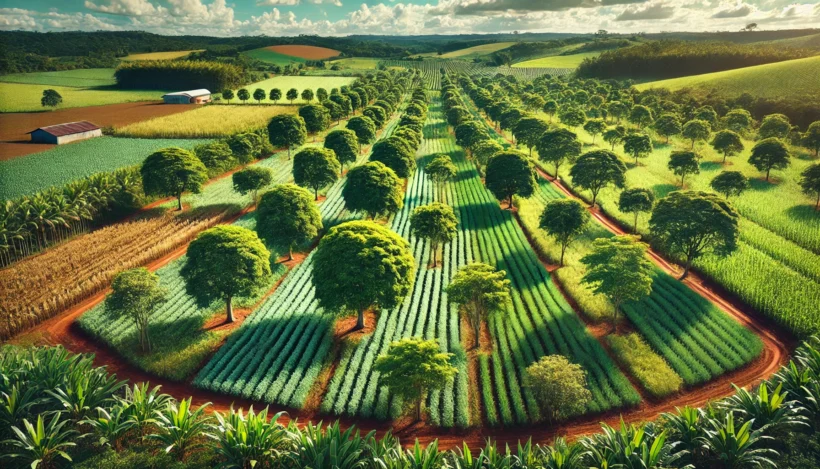Agroforestry, an ancient practice with modern relevance, is gaining recognition worldwide as a sustainable solution to multiple environmental and economic challenges. By integrating trees with crops and livestock, agroforestry not only enhances biodiversity but also promotes soil health, reduces erosion, and increases agricultural productivity.
In this approach, trees are deliberately planted alongside crops and pastures, creating a diverse farming system that benefits both the environment and the farmer. The trees provide shelter for crops, improving resilience to extreme weather events, and contribute nutrients back to the soil through leaf litter and root systems. This integration helps maintain soil structure, reduces the need for chemical fertilizers, and increases the efficiency of water use.
Agroforestry also plays a crucial role in climate change mitigation. Trees absorb carbon dioxide from the atmosphere, acting as carbon sinks and helping to reduce the overall carbon footprint of agriculture. Moreover, these systems can generate additional income through the sale of timber, fruits, nuts, and other non-timber forest products, making them economically viable for farmers.
Incorporating agroforestry into farming practices can significantly boost food security and livelihoods. It offers a holistic approach to land management, creating resilient agricultural systems that can adapt to changing environmental conditions. By supporting agroforestry, we are not only protecting our environment but also ensuring that farming communities can thrive in the long term.
The future of agriculture lies in sustainable practices like agroforestry that promote ecological balance while meeting the needs of a growing population. SOF Vanam is dedicated to advancing these practices, providing expertise, and empowering farmers to integrate trees into their fields, fostering a sustainable and prosperous future for all.


Leave a Reply